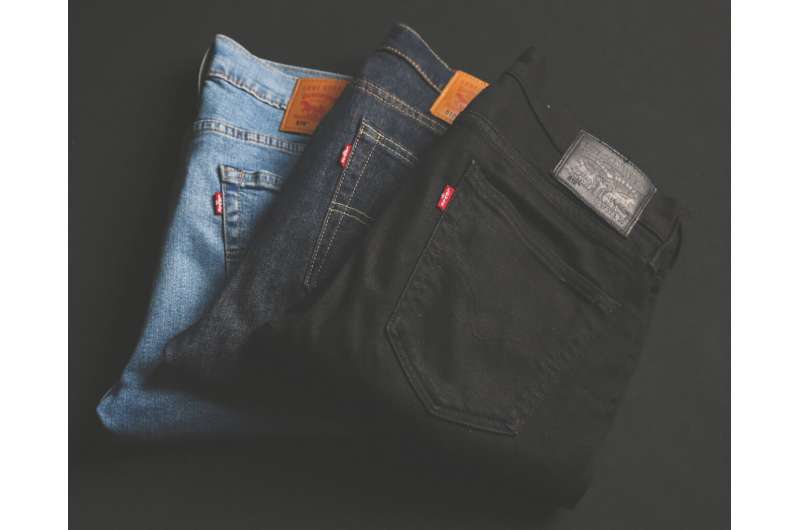
That new pair of jeans you’ve been eyeing won’t only cost your wallet but the planet too, and a group of high schoolers want to change that.
The Washington State Legislative Youth Advisory Council, composed of 22 high school students from across the state, is pushing a pair of bills that would promote transparency and hold the fashion industry accountable for its negative impacts on the environment.
House Bill 2068 and Senate Bill 5965 seek to create a balance between looking good and taking care of the planet. The bills—sponsored by Rep. Sharlett Mena, D-Tacoma, and Sen. Joe Nguyễn, D-White Center—would require corporations with a gross income of more than $100 million worldwide to publicly disclose where they source and manufacture their products and set targets to reduce emissions to meet environmental goals.
They are joining similar efforts in other states, like New York, where lawmakers introduced the “Fashion Act” three years ago, which has yet to pass.
“When you have states that are willing to lead and implement these policies at the state level, we start to create a chain reaction for other states to be able to follow suit and create national change,” Mena said.
The majority of the fashion industry relies on the fast production of low-quality clothing to meet the latest trends, increasing carbon emissions and polluting water.
The industry is responsible for 8% of total global carbon emissions. If nothing is done now, those emissions could account for more than a quarter of the total global carbon emissions by 2050, according to studies done by several environmental consulting firms.
If passed, Maanit Goel, chair of the Washington State Legislative Youth Advisory Council said the disclosure requirements would help consumers understand the environmental impacts of the clothes they’re buying and let them figure out what brands they want to support.
“I think one of the big areas where we’re going to need to make big-picture change, if we’re going to address these big environmental issues, is going to be in these globalized supply chains,” Goel said.
Many companies in the fashion industry have signed voluntary environmental initiatives, but they weren’t yielding any results, said Maxine Bédat, director of the New Standard Institute, a fashion-focused think tank based in New York.
“It became very clear that because the industry operates to maximize short-term profits, sustainability targets were always going to be in competition with that,” Bédat said.
Bédat, along with advocates, introduced and pushed the “Fashion Act” in New York and is supportive of the bills in Washington and across the country.
“It’s a landmark piece of legislation,” Bédat said. “As I have come to understand, it takes time—sometimes, sometimes not—for these things to work their way through.”
Washington lawmakers first drafted a bill in 2022. It didn’t receive a hearing but youth from the Washington State Legislative Youth Advisory Council revived it the following year. Last year, it received a committee hearing but failed to move forward.
This legislative cycle, the bill was introduced in both the House and Senate and is awaiting action on whether it will move forward.
Opponents of the bill raised concerns over the complexity of fashion chains and the broad application and implementation of the proposal, arguing a bill like this belongs at the federal level, not the state level.
“Enacting a bill specific to Washington would put retailers and manufacturers at a competitive disadvantage with minimal environmental gains,” said Mark Johnson who testified on behalf of the Washington Retail Association.
Nguyễn acknowledged the bills have a rough road ahead.
“It’s a tough bill because you’re tackling some of the largest fashion companies in the world and the retailers,” Nguyễn said. “It’s also very complex because it’s global.”
If made into law, the Washington State Department of Ecology would have the power to enforce disclosure requirements and issue penalties for noncompliance. Citizens would also have the power to initiate action for violations against companies out of compliance and compel the ecology department to start an investigation.
The money collected from these penalties would go toward creating a community benefit account aimed at furthering environmental justice concerns in vulnerable communities. Examples include air quality monitoring, pollution cleanups or projects helping people receive cleaner energy.
The state ecology department has two main concerns with the proposed legislation, said Kimberly Goetz, who testified on behalf of the department.
The first is the department has little to no experience identifying and evaluating the business practices of multinational corporations, which could result in potential errors that may leave the state vulnerable to civil litigation.
The open-ended nature of the bills’ provisions also could lead to other consequences.
“Allowing any person to commence an action against Ecology could result in the agency being required to defend bad-faith actions filed by anyone from anywhere in the world,” Goetz said.
Even if the bills don’t pass, advocates hope companies and consumers begin to think more critically about the role they play in environmental sustainability.
If the bills pass, they could set a precedent for how states can use public disclosure laws to hold global industries accountable for environmental issues.
“I think that this is going to be the next frontier in terms of some of our climate policies,” Nguyễn said.
2024 The Seattle Times. Distributed by Tribune Content Agency, LLC.
Citation:
Trying to make fashion friendlier to the environment (2024, January 25)
retrieved 25 January 2024
from https://phys.org/news/2024-01-fashion-friendlier-environment.html
This document is subject to copyright. Apart from any fair dealing for the purpose of private study or research, no
part may be reproduced without the written permission. The content is provided for information purposes only.







